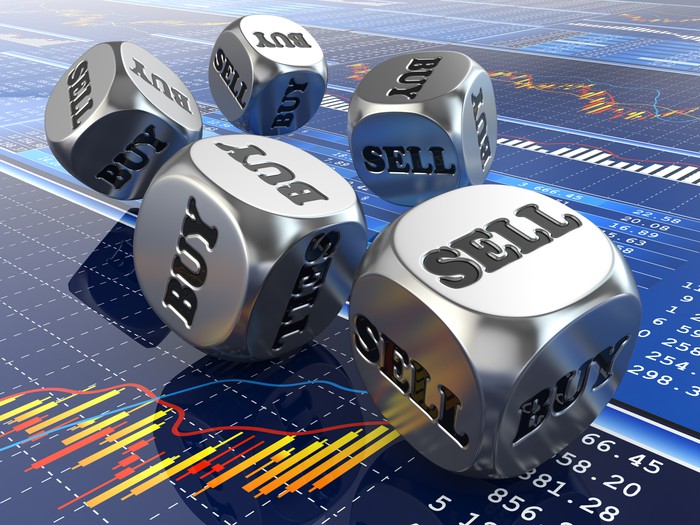Check out the latest PepsiCo and Anheuser-Busch InBev earnings call transcripts.
Stock market volatility that started late in 2018 has continued on into the new year. Worries over trade wars and a slowdown in the global economy have sent many investors in search of stable dividend-paying stocks to weather the storm. Two such names are soft-drink and snack maker PepsiCo (PEP 0.32%) and global beer conglomerate Anheuser-Busch InBev (BUD +0.31%).
However, there's more to the story for both companies. In spite of their size and perceived stability, the businesses are facing disruption and aren't the same bellwethers they were in times past.
|
Metric (First Nine Months of 2018) |
PepsiCo |
Anheuser-Busch InBev |
|---|---|---|
|
Revenue |
$45.1 billion |
$40.4 billion |
|
YOY increase (decrease) |
2.6% |
(3.5%) |
|
Gross profit margin |
54.7% |
62.4% |
|
YOY increase (decrease) |
(0.5 p.p.) |
1.2 p.p. |
|
Earnings per share |
$3.97 |
$2.64 |
|
YOY increase (decrease) |
2.6% |
(12%) |
Data sources: PepsiCo and A-B InBev. YOY = year over year. P.p. = percentage point.
Soft-drink wars transform into healthy-snack wars
PepsiCo owns the No. 2 and No. 4 soft drinks in the United States -- Pepsi and Mountain Dew. It also owns home soda-maker specialist SodaStream and a snack-food business led by the Frito-Lay brand. But for all those big names, Pepsi has seen its share of trouble in the past year. While sales have been increasing at a modest pace, profits have been weighed down by rising transportation and commodity prices, stagnating consumer tastes for sugary drinks, and an evolving food industry trying to keep up with demand for healthier options.
Yet in spite of the challenges, Pepsi has still managed to grow the bottom line, albeit with some help from corporate tax reform enacted in the U.S. at the end of 2017. Full-year 2018 organic growth is expected to be at least 3%, which should result in adjusted earnings growth of 8%. But in spite of the decent showing in 2018, the stock still fell 8%.
Based on expectations over the next 12-month stretch, the price-to-earnings ratio is at 18.7, a notable premium over the 12-month forward ratio for the S&P 500, which currently sits at 15.7. However, Pepsi pays an above-average dividend, currently yielding 3.4% as of this writing. Given the recent pullback in the stock and the quarterly payday, there could be worse places to invest.

Image source: Getty Images.
Corporate beer loses its fizz
After shuffling its portfolio with the purchase of SABMiller and multiple regional craft brewers in the U.S., A-B InBev has emerged as the dominant beer maker on the world scene. That's been good news and bad news for the maker of Budweiser. On one hand, the company has been able to increase its profit margin on product sold, as indicated by the 62.4% gross margin in 2018, compared with 61.2% a year ago. On the other hand, revenue has been falling as the company faces pressure from smaller competition.
That has been particularly the case in the States, where the craft-beer movement has siphoned off sales from what was historically a very stable business model. Beer volume in North America has fallen 3.1% in 2018 to-date for A-B InBev. Paired with a dividend payout that was halved last year, the stock fell 41%.
However, in spite of lackluster growth for the beer giant, shares could be a value right now. The 12-month forward price-to-earnings ratio is 15.7, and thanks to the steep stock decline, the dividend yield is a generous 4.6% on an annualized basis. Though times have been better at Budweiser, adversity can sometimes spell opportunity.
The better beverage buy
PepsiCo and A-B InBev both have their share of difficulties as they navigate an evolving landscape for beverages and snack foods. While both companies could rebound in 2019 after a less than stellar run, I think A-B InBev represents a better value at the moment. The valuation based on the next 12 months is much lower than Pepsi's, and the dividend yields a full extra percentage point higher, even after the company slashed the benefit.
Nevertheless, there is particular risk with A-B InBev. Though 2018 was an ugly year for corporate beer, it might be too soon to call a bottom, as the business continues to face disruption from smaller breweries. Thus, income investors should tread lightly and keep any purchases they make small.



